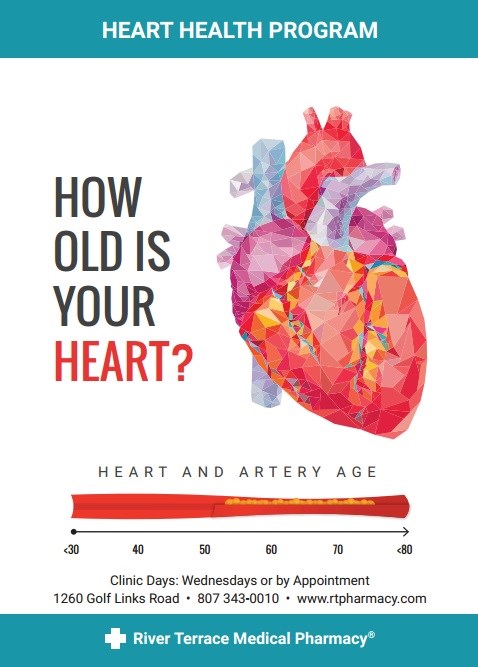February is Heart Health Month Part 2:
Lowering blood pressure for a healthy heart
What is high blood pressure?
Blood pressure is the force of blood against the walls of your arteries. This pressure can rise and fall throughout the day every day. However, if the pressure stays elevated over time, it's referred to as high blood pressure.
What happens when you have high blood pressure?
High blood pressure is a risk factor for coronary artery disease which is a form of heart disease caused by the buildup of plaque in the arteries that supply blood to your heart. This can result in chest pain, heart attack and sudden death. Specifically when you have high blood pressure the heart has to work harder and this contributes to hardening of the arteries.
Fun fact: Ever wonder why blood pressure is measured as two numbers? ie. 120/80
The top number is referred to as systolic pressure and measured when the heart beats and the bottom is the diastolic pressure and measured when the heart is relaxed.
How can you prevent or control high blood pressure?
Some ways you can lower blood pressure include many of the same healthy heart steps that can reduce your risk of coronary artery disease. Specifically for high blood pressure doing the following interventions in your life can decrease your blood pressure noticeably check it out below!
| Lifestyle Change Recommendation | Change in blood pressure |
| Decrease salt intake | -5.8/-2.5 |
| Weight loss of 10lb | -7.2/-5.9 |
| Decrease in alcohol intake by 2.7 drinks per day | -4.6/-2.3 |
| Exercise of 30-45 min three times a week | -10.3/-7.5 |
| Eating a healthy diet targeted for lowering blood pressure | -11.4/-5.5 |
If you have been diagnosed with high blood pressure, it is important to work together with your healthcare provider to reduce it.
In some cases you may have been diagnosed with high blood pressure and are on medications to help control it. Adherence with taking your medication is important so it is able to work properly. This is especially important for blood pressure medications as you may not notice the effects of the medication in your day to day life but it works internally to lower blood pressure and therefore decrease your risk of heart disease and its complications.
True or false: There are some medications that can increase blood pressure?
This is true. Some medications and other factors that can increase your blood pressure include but not limited to the following:
● Non-steroidal anti-inflammatories including over the counter products such as Advil and Aleeve
● Over the counter decongestants such as pseudoephedrine used commonly in cough and cold products and treats sinus congestion
● Salt
● Excessive alcohol use
So if you are looking for another way to reduce your blood pressure try and limit these products in your life. You could try tylenol instead of advil, or use a decongestant spray instead of an oral medication.
The next blog is all about lowering cholesterol levels for a healthy heart! So watch for that next week!
By Rachelle Laurin, RPh


